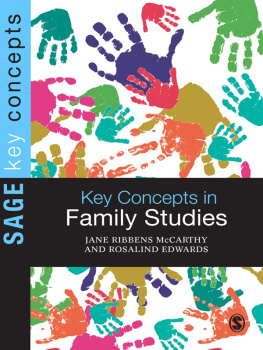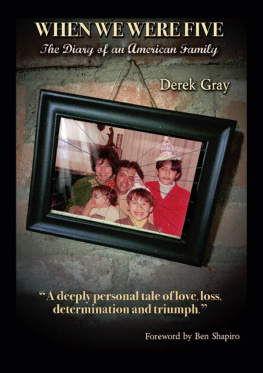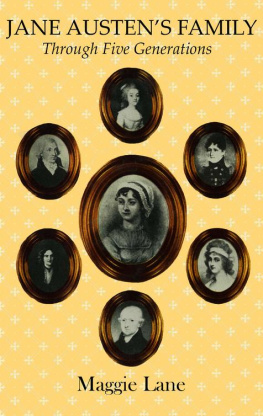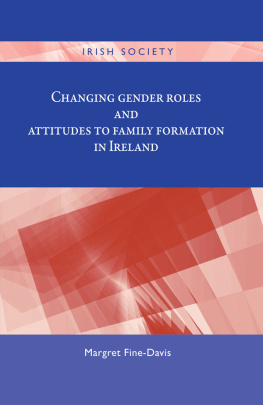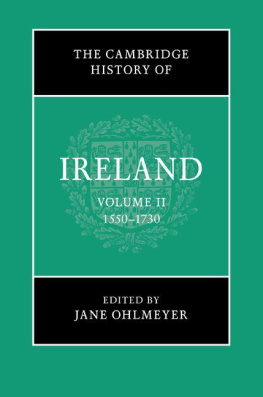Copyright Jane Gray, Ruth Geraghty and David Ralph 2016
The right of Jane Gray, Ruth Geraghty and David Ralph to be identified as the authors of this work has been asserted by them in accordance with the Copyright, Designs and Patents Act 1988.
Published by Manchester University Press
Altrincham Street, Manchester M1 7JA
www.manchesteruniversitypress.co.uk
British Library Cataloguing-in-Publication Data
A catalogue record for this book is available from the British Library
Library of Congress Cataloging-in-Publication Data applied for
ISBN 978 0 7190 9152 0
First published 2016
The publisher has no responsibility for the persistence or accuracy of URLs for any external or third-party internet websites referred to in this book, and does not guarantee that any content on such websites is, or will remain, accurate or appropriate.
Typeset in 10/12 Photina by
Servis Filmsetting Ltd, Stockport, Cheshire
Preface
We had a number of goals in mind when we embarked on the project of writing this book. First, there has been a huge growth in output within the field of Irish family sociology in recent years, thanks to the availability of funding for the analysis of major new data sources such as the Growing Up in Ireland: The National Longitudinal Study of Children. We believed that there was an unfilled need to bring these findings together in a student-friendly book that placed them in the context of national and international sociological theory and research on families, and that drew together some emerging policy implications.
Second, there is a wealth of classical research on Irish families dating back to the early decades of the twentieth century, the value of which has been under-estimated in explanations of contemporary family change. We saw an opportunity to highlight for both students and general readers the contributions these studies have made, alongside an appreciation of contemporary scholarship.
Third, and most importantly, the availability of substantial new qualitative datasets made it possible for us to engage with contemporary theoretical perspectives by re-visioning the changing rhythms and textures of Irish family life over an extended period of social change.
Jane Gray was a co-principal investigator, together with Professor Sen Riain, on the project funded by the Irish Research Council to develop an infrastructural database of qualitative life history narratives from three cohorts of Irish people, born in different historical periods, whose lives have traversed many social, cultural and economic changes since the earliest decades of the state. These Life Histories and Social Change interviews have been deposited in the Irish Qualitative Data Archive (IQDA), where they are available for re-use by researchers and educators.
Growing Up in Ireland: The National Longitudinal Study of Children is a government funded panel study that is tracking two cohorts of Irish children over time: a child cohort that joined the study at nine years of age, and an infant cohort that is being followed from birth. As part of the first wave of interviews with the nine-year-olds and their parents, and also with the infants parents, researchers from the Growing Up in Ireland study carried out qualitative interviews with a selected group of participants. In the case of the child cohort, 120 children and their families were interviewed. The transcripts from these interviews are also now available through IQDA to academic researchers and students.
Thanks to a second grant from the Irish Research Council, Ruth Geraghty and David Ralph joined Jane Gray in the Family Rhythms project at Maynooth University. Family Rhythms was designed to act as a demonstrator and knowledge-exchange project for the analysis of archived qualitative data, using the Life Histories and Social Change interviews and the interviews from the Growing Up in Ireland child cohort. This book is one of the principal outputs from that project. We believe it is unique in bringing a comprehensive overview of existing sociological knowledge about family change into dialogue with original analysis of qualitative data to develop a new understanding of the changing contours of Irish family life. The rich memories, reflections and descriptions that we have included throughout provide context and depth to the quantitative data and abstract ideas that also inform our analysis. More significantly, they have allowed us to develop new insights into the motives, feelings and rationalities behind Irish peoples family practices and experiences in changing social contexts aspects of the explanation of social change that are not so easily captured in quantitative data.
We would like to acknowledge the generosity of the Irish Research Council in funding the research towards this book and to extend our thanks to researchers from the Growing Up in Ireland team for their assistance with the data. We are grateful, also, to the Maynooth University Research Development Office for providing support through their Publications Fund. The National Institute for Regional and Spatial Analysis at Maynooth University provided a congenial home to the Family Rhythms project. Thanks to Professors Rob Kitchin and Mark Boyle who supported us in their capacity as Directors of the Institute and to Rhona Bradshaw and Orla Dunne for their assistance in managing the project.
The IQDA plays a key role in making qualitative data available for sharing and re-use. It has been funded by the Irish Government as part of the Irish Social Science Platform under the fourth Programme for Research in Third Level Institutions (PRTLI4), and as a participant in the inter-institutional consortium that has developed the Digital Repository of Ireland (DRI) with the assistance of government funding under PRTLI5. The Life Histories and Social Change dataset forms the basis for a demonstrator project on enhanced qualitative social science data (Irish Lifetimes) in the DRI.
This book forms part of the emerging knowledge available to researchers, students and the public, thanks to the up-scaling of new social science research data in Ireland. It demonstrates the value of big qualitative data for enhancing our understanding of social change and for informing policy. Prospective qualitative research will continue to play an important role in the future. We hope that future waves of the Growing Up in Ireland project will include qualitative modules as part of that endeavour.
Finally, we would like to acknowledge the Irish people of many different ages and backgrounds who contributed the narratives that inspired this work. Jane Gray would like to thank Paul, Rebecca and Adam for their patience and love as she worked on this project and to acknowledge how Lewis Grays wisdom helped her to understand the textures of Irish life across the generations. Ruth Geraghty would like to thank her family, especially Frank, Mary, Will, David, Marianne, Gordon, Deirdre, Alannah, Cara and Tom for their constant support, encouragement and love.




